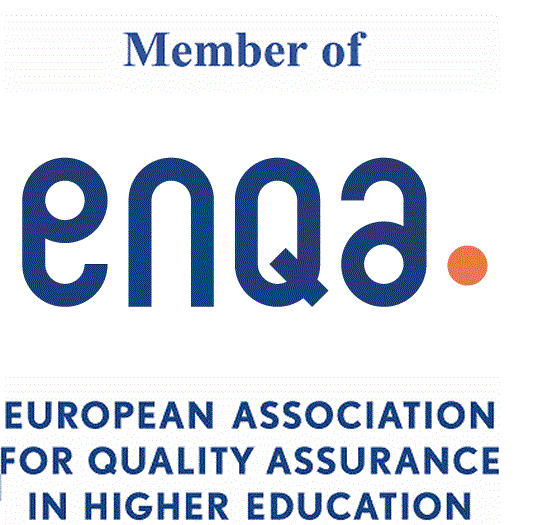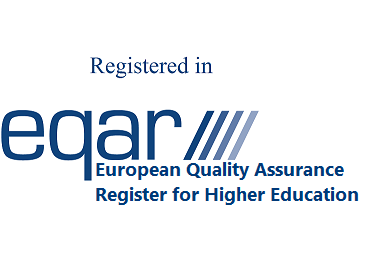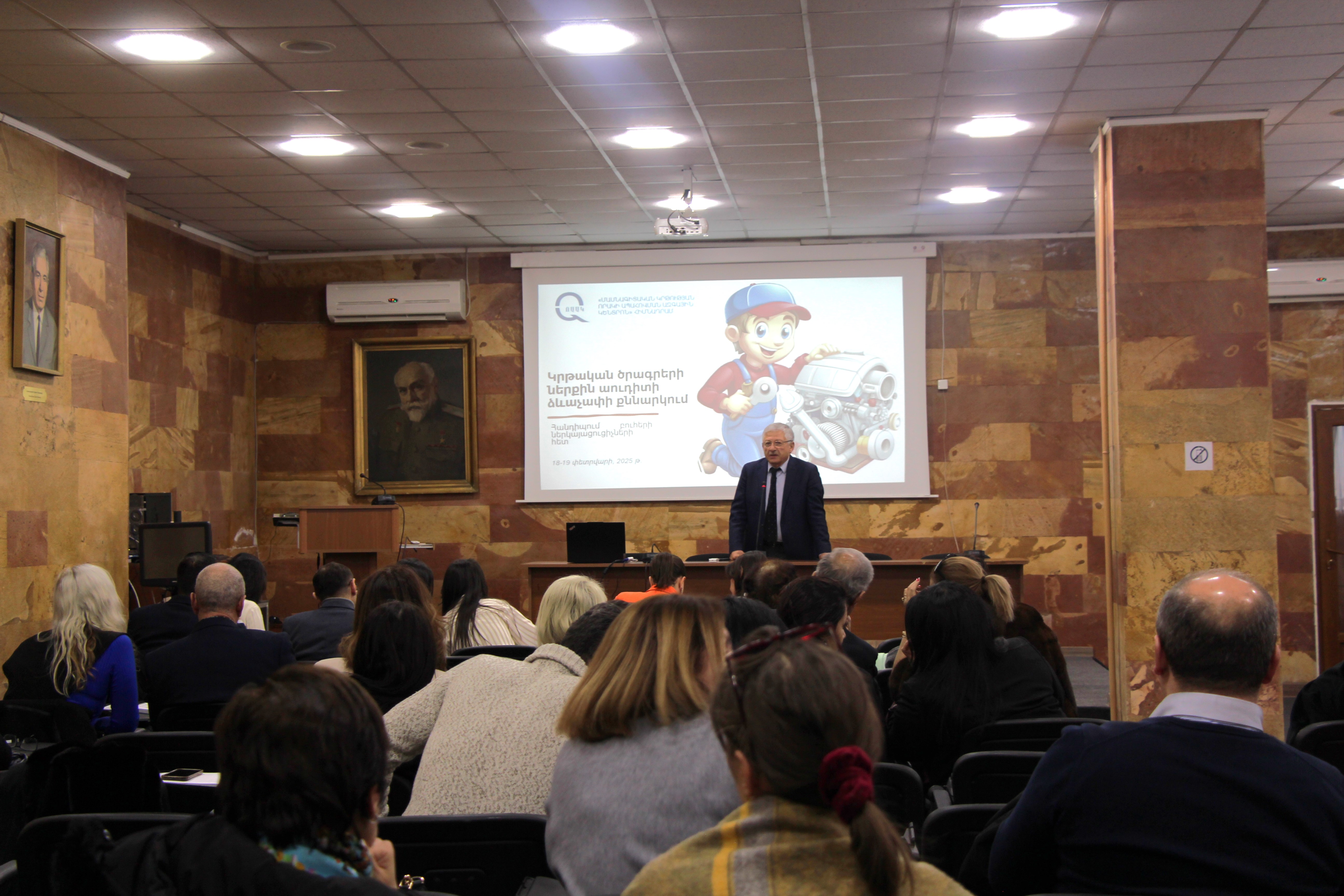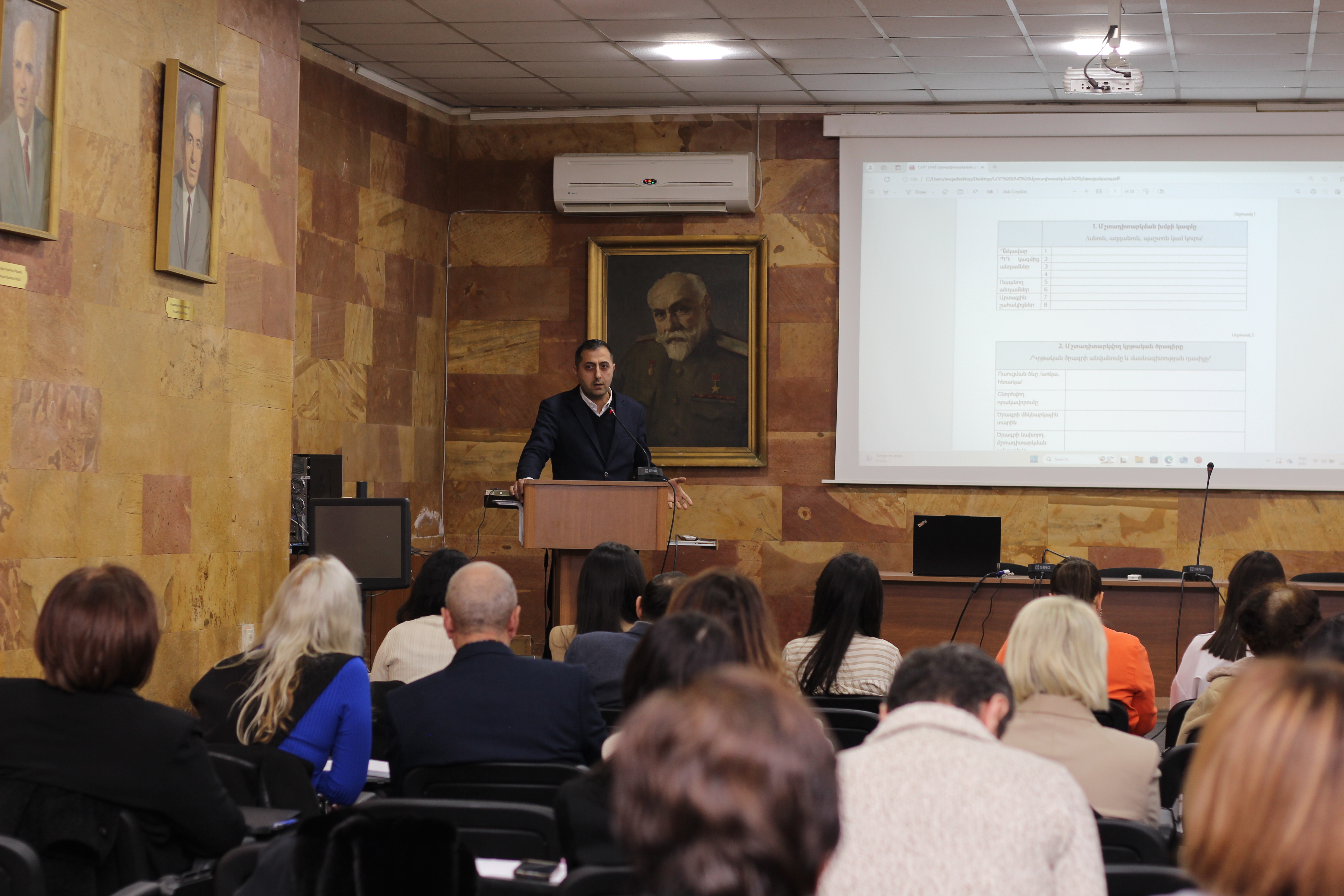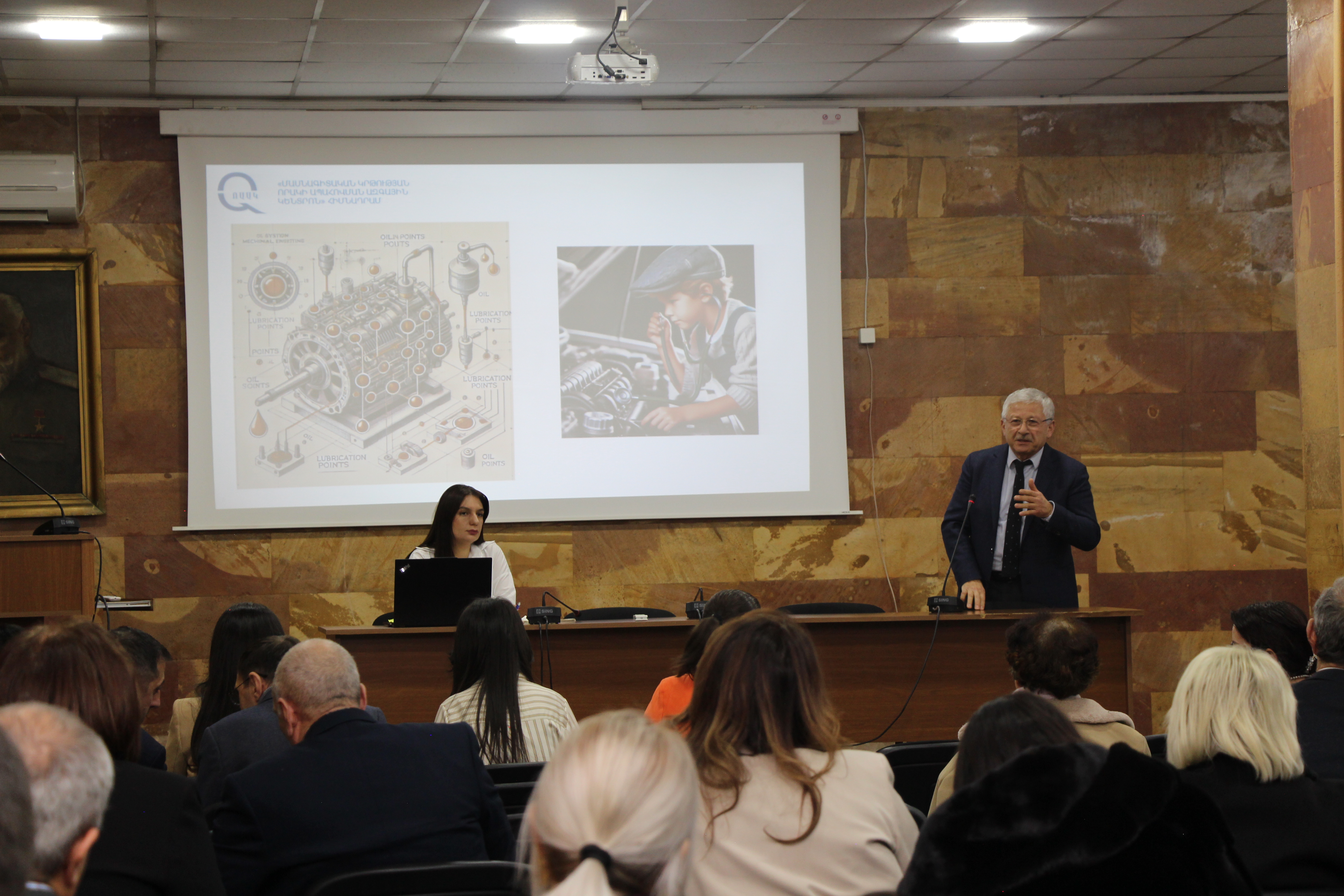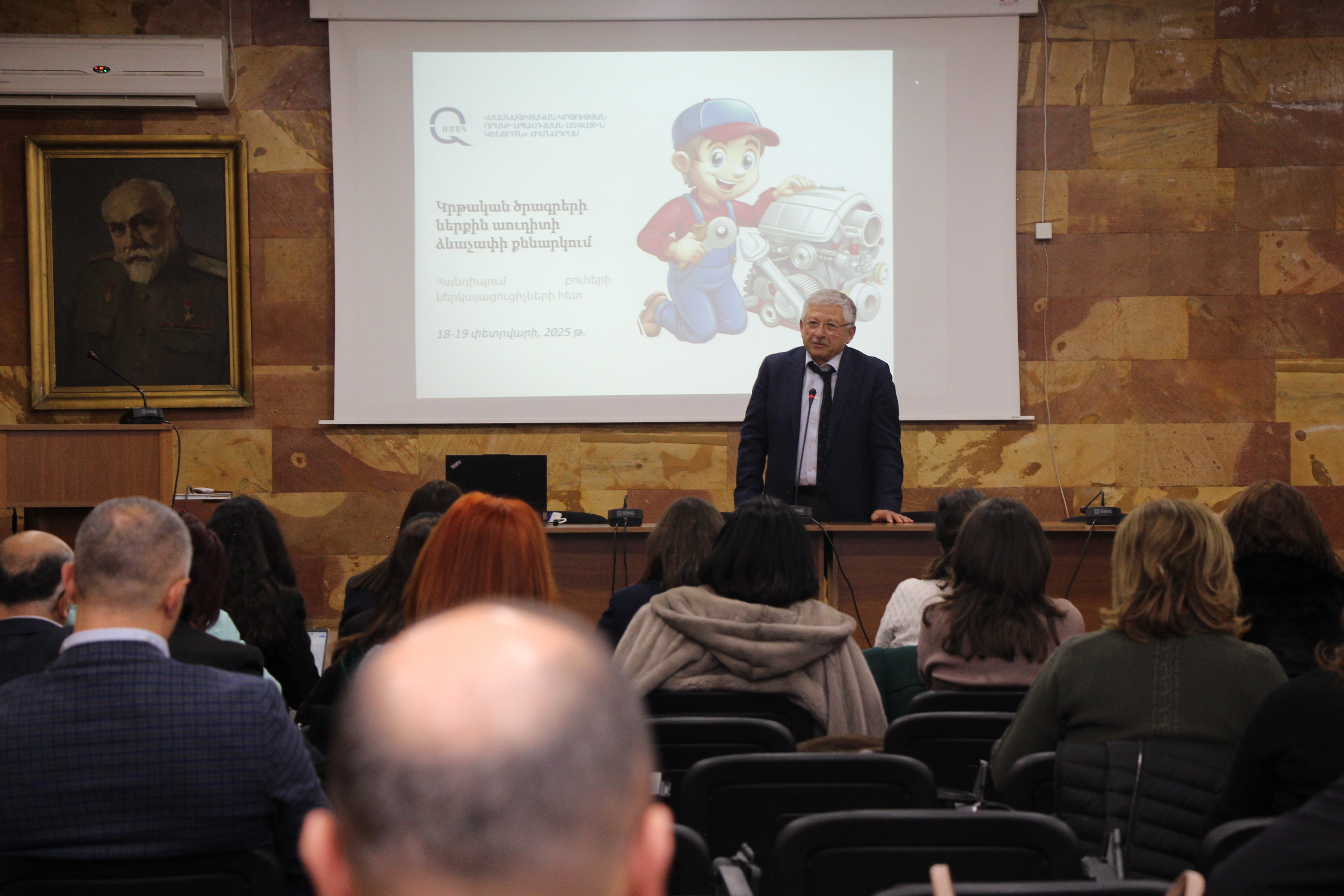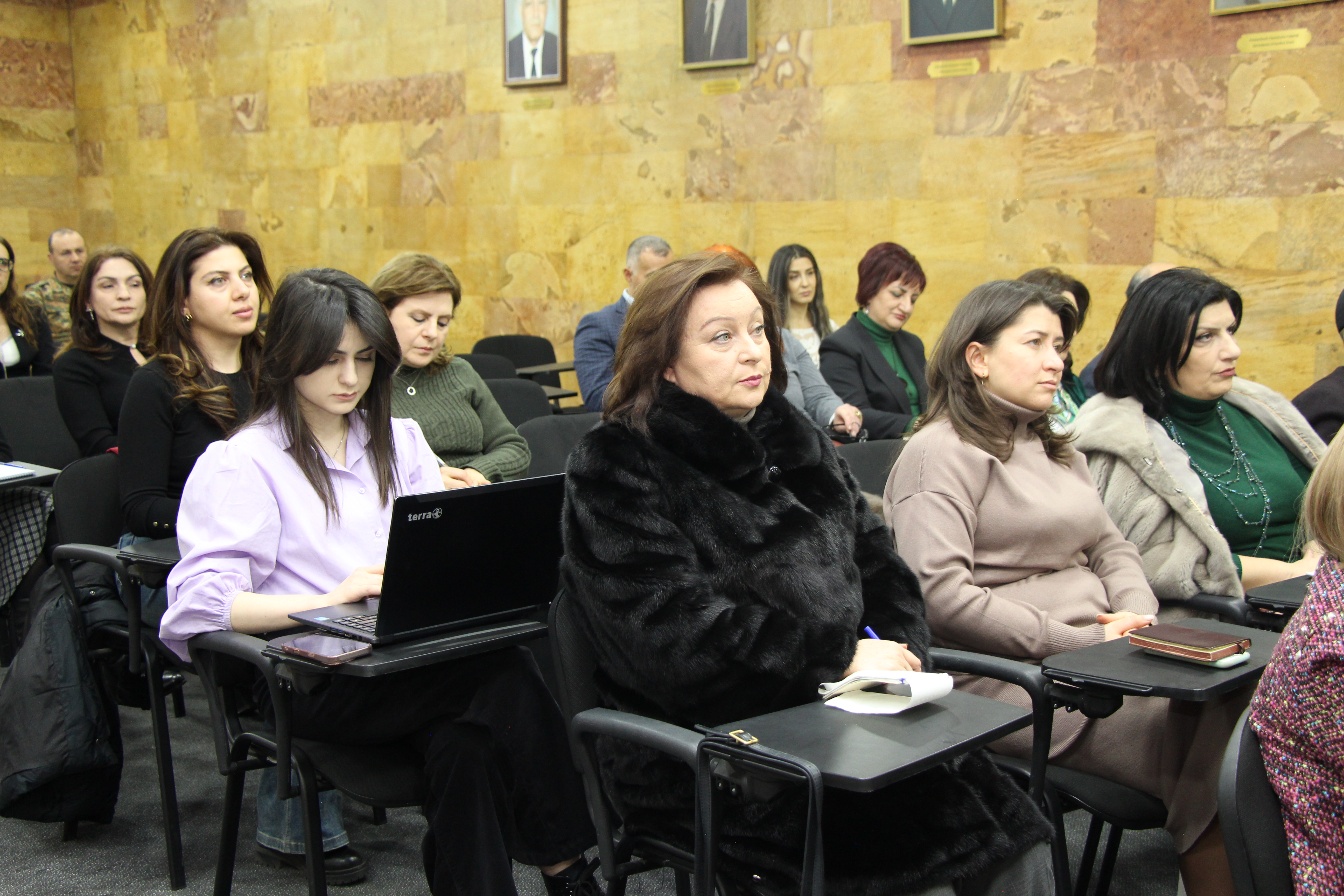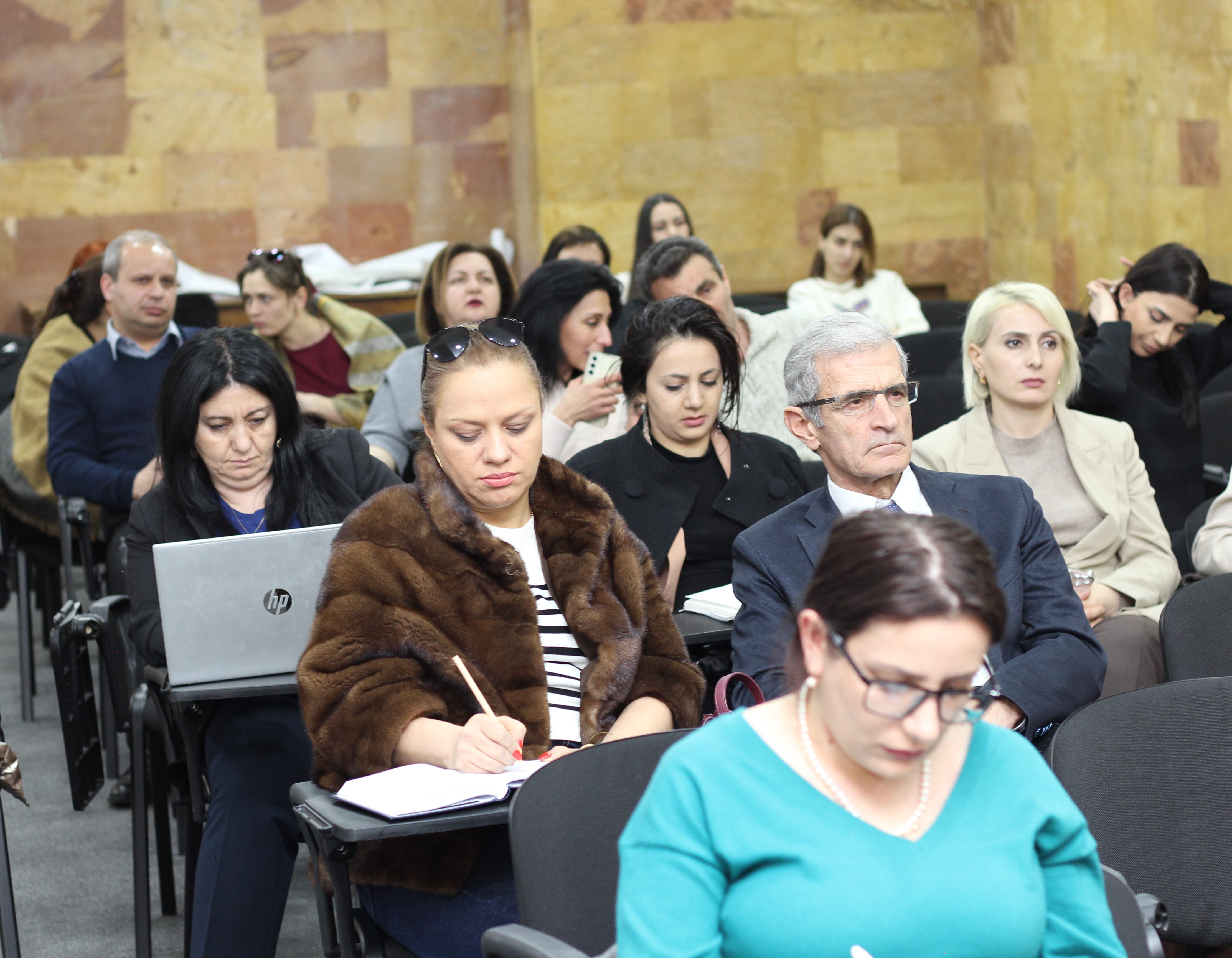On February 18-19, ANQA held workshops with the participation of vice-rectors and quality assurance managers from the accredited HEIs. The discussions focused on the internal auditing of the academic programmes (Aps), as specified in the decisions of ANQA’s Accreditation Committee.
The main agenda items included:
- determining the need for a unified audit framework;
- exploring whether each HEI develop its own audit framework, guided by general principles and its own peculiarities.
Ruben Topchyan, ANQA’s director, pointed out that the internal audit of the Aps enables HEIs to identify and address their specific issues. “The Standards and guidelines for quality assurance in the European Higher Education Area (ESG) specify that HEIs are responsible for the implementation and quality of their academic programmes and should continuously work towards their enhancement”, mentioned Dr. Topchyan.
Comparing the process to a technical inspection of an engine, Ruben Topchyan highlighted that accreditation works in much the same way, preventing major issues, and emphasised the need for ongoing monitoring of quality assurance. “The monitoring areas can be planned annually, with specific predefined hypotheses. The hypotheses can be drawn from the expert panel reports. For instance, they may consider whether the credits are used effectively and the outcomes meet the labour market's requirements, or if any minor outcomes have been defined”, mentioned Dr. Topchyan.
On the first day, Gagik Ktryan, head of the Quality Assurance Department at the Armenian State Institute of Physical Culture and Sport, shared his practice in auditing academic programmes, stressing the need for data collection and analysis. Gagik Ktryan mentioned that the AP monitoring is implemented in parallel with a chair audit conducted by the quality assurance department, leading to the formation of a complete picture of the current issues and areas for enhancement.
The data collection process was also under discussion: should hypotheses and monitoring areas be defined initially, followed by data collection, or should data be gathered first and then analysed? Conducting audits through the tracking principle was highlighted, allowing for systematic monitoring of data collected on various components of the academic programmes.
The participants underscored the importance of auditing with a decentralised approach, engaging the faculties in the process. The participants presented the auditing steps for their HEIs’ APs, highlighting best and unsuccessful practices. It was emphasised that the use of a unified framework may not be effective as each HEI has its own peculiarities. Therefore, it is more appropriate for each HEI to develop its own framework and define auditing principles based on general principles.
Attached you can find the meetings’ slide presentations:
First day presentation
Second day presentation

